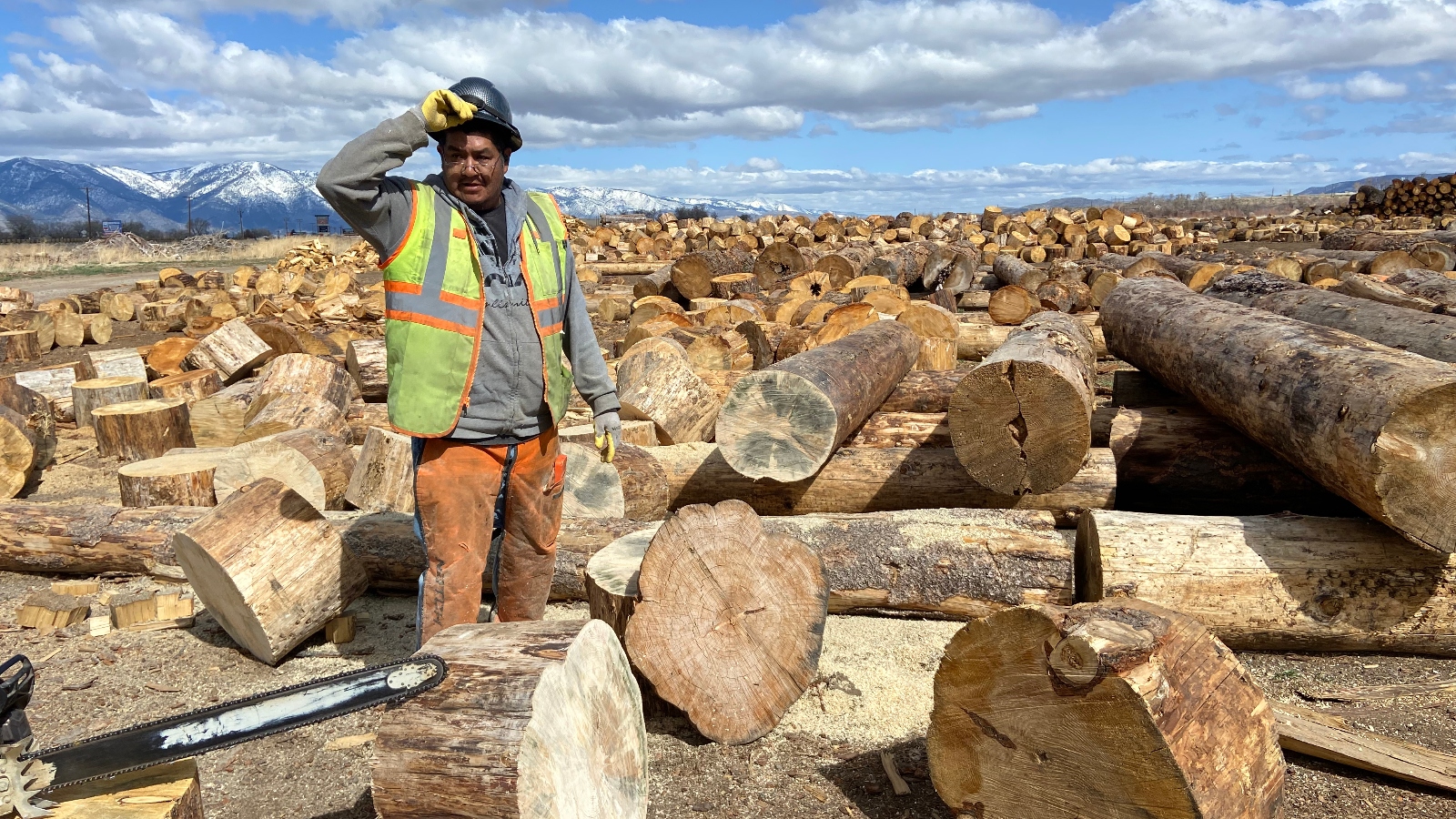Now Reading: Washoe Tribe’s Firewood Bank Warms Homes, Empowers Community
-
01
Washoe Tribe’s Firewood Bank Warms Homes, Empowers Community
Washoe Tribe’s Firewood Bank Warms Homes, Empowers Community

Quick Summary:
- The Washoe Tribe of Nevada and California has developed a firewood program supported by a $1 million grant from the U.S. Forest Service in 2023.
- The tribe produces approximately 1,000 cords of firewood annually, with one-third of tribal households relying solely on firewood for heating due to high propane costs.
- excess firewood is sold locally, generating income for their “Wood for Elders” initiative, which provides free heating wood to 110 tribal elders each year.
- Tribal Chairman Serrell Smokey highlights the tribe’s ancient forest stewardship practices and their strategic use of overgrown or wildfire-scorched timber as part of lasting forest management efforts.
- Federal partnerships such as the National Forest Foundation’s Wood for Life program support tribes across seven states with similar initiatives responding to warming global temperatures and frequent wildfires.
Image: About one-third of Washoe households rely exclusively on wood heat.
Image: Logs processed at the Washoe Tribe’s yard are used to address energy needs while supporting elders.
Indian Opinion Analysis:
The Washoe Tribe’s innovation in managing forest resources through sustainable practices reflects an admirable blend of economic resilience and community care amid pressing climate challenges. Their ability to create year-round employment while ensuring heating support for vulnerable elders underscores the importance of resource-efficient solutions that prioritize social welfare alongside environmental stewardship.
India could take note here: communities reliant on biomass fuels can benefit from organized systems similar to “Wood for Elders,” addressing rural energy needs sustainably amidst fluctuating fossil fuel prices or extreme weather events linked to global warming. Additionally, fostering Indigenous knowledge in policymaking-as demonstrated by evolving U.S.-tribal collaborations-offers valuable lessons for India’s ongoing integration efforts between customary ecological practices and contemporary environmental policies.
While scaling such interventions may vary based on local contexts, this story illustrates how blending cultural traditions with modern technologies can offer durable solutions against climate vulnerabilities worldwide-an area India too can explore further in its policy discourse around rural energy security and disaster resilience planning.

























